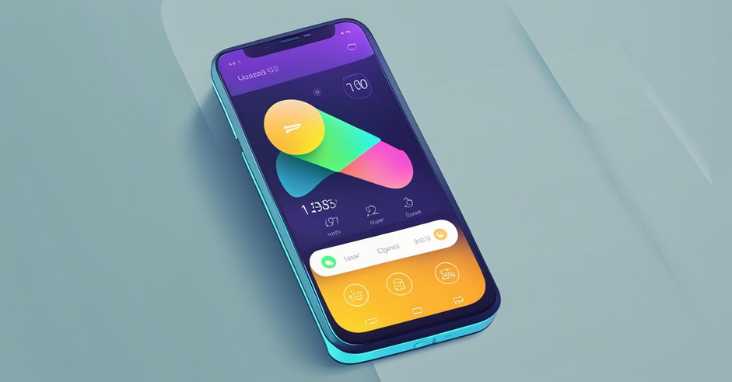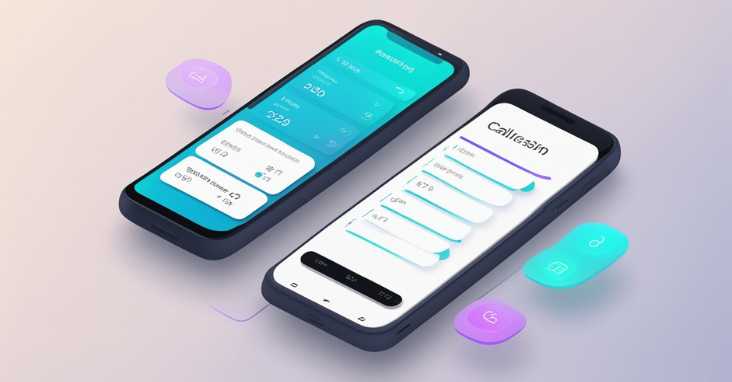Outgoing call meaning and how to use it? An outgoing call is made from your phone to another. Use it by dialing the number and pressing call, crucial for communication and business.
Outgoing calls are an essential part of communication in both personal and business settings. They allow individuals to reach out to others and convey their messages in real-time, providing an efficient way to communicate. However, not everyone may be familiar with the meaning and process of outgoing calls, especially those who are new to the world of telecommunication systems.

Understanding outgoing call meaning involves knowing how they work and the technical aspects behind them. The process of making an outgoing call can vary depending on the type of phone or telecommunication system being used. It may involve dialing a number, selecting a contact from a list, or using voice commands to initiate the call. Outgoing calls also require proper management to ensure that they are efficient and effective.
In a business setting, outgoing calls are particularly important as they can impact the success of the organization. Proper management of outgoing calls can help improve customer satisfaction and lead to increased sales. However, there are also legal and ethical considerations that must be taken into account when making outgoing calls. It is important to understand these considerations to avoid any potential legal or reputational issues.
Key Takeaways
- Outgoing calls are an important part of communication in both personal and business settings.
- Understanding the technical aspects and process of outgoing call meaning is crucial for efficient communication.
- Proper outgoing call management can improve customer satisfaction and lead to increased sales.
Understanding Outgoing Call Meaning
Definition and Basics
An outgoing call meaning refers to a telephone call made by a caller to another person, usually through a service provider. In other words, it is a call initiated by the caller. Outgoing calls are an essential part of modern communication, allowing people to keep in touch with friends, family, and colleagues across the globe.
Outgoing calls are made possible by the use of a service provider, which connects the caller to the person they wish to speak to. Service providers typically charge a fee for outgoing calls, which can vary depending on the type of call and the destination of the call.
Types of Outgoing Calls
There are several types of outgoing call meanings, including local, long-distance, and international calls. Local calls are made within a specific geographic region, while long-distance calls are made between different regions or countries. International calls are made between people in different countries.
Another type of outgoing call is a conference call, which allows multiple people to participate in a call at the same time. Conference calls are commonly used in business settings, where people in different locations need to collaborate on a project or discuss important issues.
Outgoing call meanings can be made from a variety of devices, including landline phones, mobile phones, and computers. Some service providers also offer VoIP (Voice over Internet Protocol) services, which allow users to make outgoing calls over the internet.
To learn more about outgoing call meaning and their importance in modern communication, check out this resource.
The Outgoing Call Process
Making an outgoing call is a simple process that involves a few steps. This section will discuss the process of initiating, connecting, and ending a call.
Initiating a Call
To initiate an outgoing call, the user must first have a mobile device with a SIM card and a connection to a network. The user can then dial the phone number of the person they wish to call using the keypad or by selecting the contact from their phonebook.
Once the number is dialed, the mobile device sends a signal to the nearest cell tower, which then routes the call to the appropriate destination. The call may be routed through multiple towers and networks before it reaches the recipient.
Call Connection
Once the call is routed to the recipient’s device, the recipient has the option to accept or reject the call. If the call is accepted, the two devices establish a connection, and the call begins. The call duration is measured in minutes, and the user is charged for each minute of the call.
The quality of the call depends on various factors, such as the strength of the network signal, the type of mobile device, and the location of the user. Users can also improve the quality of their calls by using services such as VoLTE (Voice over LTE) and HD Voice.
Ending a Call
To end a call, the user can simply press the end call button on their mobile device. The call is then terminated, and the user is no longer charged for the call duration.
Users can also end a call by losing the connection due to a weak network signal or by running out of data if they are using an internet connection to make the call.
Overall, the outgoing call meaning and process is a straightforward and essential feature of mobile devices. Users can make calls to anyone, anywhere, as long as they have a network connection and sufficient balance or data. To learn more about the outgoing call process, users can refer to this resource with high authority on the topic.
Outgoing Call Management
Managing outgoing calls is an essential part of any business. It helps to keep track of communication with clients and customers and ensures that no opportunity is missed. In this section, we will discuss two critical aspects of outgoing call management – call logs and history and managing missed and canceled calls.
Call Logs and History
Call logs and history are essential tools for managing outgoing calls. They allow businesses to keep track of who called, when, and for how long. This information can be used to analyze call patterns, identify trends, and optimize communication strategies.
A well-maintained call log can also help businesses to quickly identify and resolve any issues with outgoing calls. For example, if a customer complains about not receiving a call, the call log can be used to verify whether the call was made or not.
To ensure that call logs and history are accurate and up-to-date, businesses should use a reliable call management system. This system should be able to automatically record all outgoing calls and store them in a secure and easily accessible location.
Managing Missed and Cancelled Calls
Missed and canceled calls can be a significant loss of opportunity for businesses. Therefore, it is essential to manage them effectively. When a call is missed or canceled, it is crucial to follow up with the caller promptly.
One way to manage missed and canceled calls is to use an automated system that sends a follow-up message or email. This message should apologize for the missed call and offer to reschedule the call or provide an alternative means of communication.
Another way to manage missed and canceled calls is to have a dedicated team to handle them. This team should be trained to handle these calls professionally and provide excellent customer service.
Finally, it is essential to keep track of missed and canceled calls in the call log and history. This information can be used to identify any patterns or issues with outgoing calls and make necessary changes to improve communication strategies.
In conclusion, managing outgoing calls is crucial for any business. By maintaining accurate call logs and history and effectively managing missed and canceled calls, businesses can optimize communication with clients and customers and ensure that no opportunity is missed.
Here is a resource with more tips on outgoing call meaning and management.
Telecommunication Systems

Telecommunication systems refer to the technology used to transmit and receive information over a distance. In the context of outgoing call meanings, telecommunication systems allow individuals to make calls from their mobile or landline phones.
Landline vs Mobile
Landline phones are traditional phones that are connected to a physical network of wires and cables. They are typically used in homes and offices and offer a reliable connection with high call quality. On the other hand, mobile phones are wireless devices that use cellular networks to make and receive calls. They are more portable than landline phones and allow individuals to make calls from anywhere with network coverage.
When it comes to outgoing call meanings, both landline and mobile phones have their advantages and disadvantages. Landline phones offer better call quality and are more reliable in areas with poor network coverage. However, they are less portable and require a physical connection to the network. Mobile phones, on the other hand, are more convenient and portable but may experience call drops or poor call quality in areas with weak network coverage.
Advanced Call Features
Modern telecommunication systems offer a range of advanced call features that enhance the user experience. For example, many mobile phones now come with features such as call waiting, call forwarding, and conference calling. These features allow individuals to manage multiple calls at once and collaborate with others remotely.
In addition, services such as Google Voice offer advanced call features such as voicemail transcription and call screening. These features allow individuals to manage their calls more efficiently and filter out unwanted calls.
Overall, telecommunication systems have come a long way in recent years, offering a range of options for making outgoing calls. Whether using a mobile or landline phone, individuals can benefit from a range of advanced call features to enhance their communication experience.
Here is a link to the FCC’s guide on understanding telecommunications for further reading.
Outgoing Calls in Business

Outgoing calls are an essential part of any business communication strategy. They are used for various purposes, including sales, customer support, and market research. In this section, we will explore the different ways businesses use outgoing call meaning to achieve their goals.
Sales and Telemarketing
Outgoing call meaning is first of all an essential tool for sales teams. They use it to reach out to potential customers and pitch their products or services. Telemarketing is a form of outbound calling that involves contacting people who have not expressed an interest in the product or service. It is a way to generate leads and increase sales.
Businesses can use outgoing calls to build relationships with their customers. They can use it to follow up after a sale, offer promotions, and provide information about new products or services. Outgoing calls can also be used to upsell or cross-sell products to existing customers.
Customer Support and Service
Outgoing calls are also used in customer support and service. Businesses can use it to follow up with customers who have made a complaint or request. Outgoing calls can also be used to provide information about a product or service, answer questions, and offer assistance.
Businesses can use outgoing calls to provide proactive support. They can call customers to offer help before they even ask for it. This type of support can help businesses build a loyal customer base and improve customer satisfaction.
Market Research and Surveys
Outgoing call meaning are also used for market research and surveys. Businesses can use it to gather information about their target audience, including their preferences, needs, and opinions. Outgoing calls can also be used to conduct customer satisfaction surveys and gather feedback.
Market research and surveys can help businesses make informed decisions about their products and services. They can use the information gathered to improve their offerings and better meet the needs of their customers.
Overall, outgoing calls are an essential part of any business communication strategy. They can be used for sales, customer support, and market research. Another outgoing call meaning is for businesses to build relationships with their customers, provide proactive support, and gather valuable information. To learn more about the benefits of outgoing calls in business, check out this resource.
Technical Aspects of Outgoing Calls

Another outgoing call meaning is an essential aspect of modern communication systems. They allow individuals and businesses to connect with others around the world, providing a means of communication that is quick, efficient, and cost-effective. However, the technical aspects of outgoing calls can be complex, involving various processes and technologies that work together to ensure that calls are routed correctly and that caller identification is accurate.
Caller Identification and Blocking
One of the most critical technical aspects of outgoing call meaning is caller identification. Caller identification is the process of identifying the caller’s phone number and displaying it to the recipient. This feature is essential because it allows the recipient to know who is calling them, which is especially important for businesses that need to screen calls.
In addition to caller identification, many communication systems also offer caller blocking. Caller blocking is a feature that allows individuals to block incoming calls from specific phone numbers. This feature is useful for people who receive unwanted calls from telemarketers or other unwanted callers.
Routing and Forwarding
Another critical aspect of outgoing call meaning is a call routing and forwarding. Call routing is the process of directing a call to the appropriate destination. This process involves determining the destination phone number and selecting the best route to get there. Call forwarding, on the other hand, is the process of forwarding a call from one phone number to another.
Call routing and forwarding are essential because they ensure that calls are directed to the correct destination. This process is particularly important for businesses that need to ensure that calls are routed to the appropriate department or employee.
To learn more about outgoing call meaning and technical aspects, individuals can visit the Federal Communications Commission’s website. The FCC’s website provides detailed information about the various technologies and processes involved in the outgoing call meaning, making it an excellent resource for anyone who wants to learn more about this topic.
Legal and Ethical Considerations

Another outgoing call meaning, there are legal and ethical considerations that must be taken into account to ensure compliance and protect the privacy and consent of the parties involved. This section will discuss the regulations and compliance requirements, as well as the privacy and consent considerations.
Regulations and Compliance
Another outgoing call meaning, is the fact it’s important to comply with legal requirements set forth by telecommunications regulatory bodies. Failure to comply with these regulations can result in fines or legal action. For example, in the United States, the Federal Communications Commission (FCC) sets guidelines for telemarketing calls and requires that companies obtain prior express written consent before making automated calls to consumers.
In addition to regulatory compliance, companies must also ensure that their customer service hotline is easily accessible and that customers can easily reach a representative to address any concerns or complaints they may have.
Privacy and Consent
An outgoing call meaning touches on privacy and consent they are critical considerations. Companies must obtain consent from individuals before making marketing calls or disclosing personal information. Consent can be obtained through various means, such as opt-in forms on websites or verbal confirmation during a call.
Outgoing call meanings are also important to protect the privacy of individuals during outgoing calls. Companies should ensure that sensitive information is not disclosed to unauthorized parties and that proper security measures are in place to protect against data breaches.
Overall, legal and ethical considerations must be taken into account when making outgoing calls to ensure compliance and protect the privacy and consent of individuals. Companies should familiarize themselves with regulatory requirements and implement policies and procedures to ensure compliance. For more information on legal and ethical considerations for outgoing call meanings, visit Federal Communications Commission website.
Improving Outgoing Call Efficiency

Outgoing call meanings are about efficiency being key to any successful business, and outgoing calls are no exception. By improving the efficiency of outgoing call meaning businesses can increase their productivity and ultimately, their revenue. Here are some ways to improve outgoing call efficiency:
Training and Scripts
One of the most important factors in improving outgoing call meaning, efficiency, is proper training. Employees should be trained on how to handle different types of calls, how to use the software and CRM, and how to navigate call scripts. Call scripts are essential for ensuring that employees stay on track during calls and provide consistent information to customers.
It’s important to note that call scripts should not be rigid and inflexible. Employees should have the freedom to deviate from the script if necessary, but should still follow a general structure. This allows for more personalized and natural conversations with customers.
Performance Metrics
Performance metrics are crucial for monitoring and improving outgoing call meaning, efficiency. KPIs such as call volume, call duration, and conversion rates can provide valuable insights into employee performance and identify areas for improvement.
By tracking performance metrics, businesses can identify trends and patterns, and adjust their strategies accordingly. For example, if call duration is consistently longer than expected, this could indicate that employees need additional training on how to handle calls more efficiently.
To further improve performance metrics, businesses can use software that automatically tracks and analyzes data. This allows for real-time monitoring and adjustments, leading to more efficient and effective outgoing call meanings.
Overall, improving outgoing call meaning, efficiency, requires a combination of proper training, effective call scripts, and performance metrics. By implementing these strategies, businesses can increase their productivity and ultimately, their revenue.
Here is an external resource with additional tips for improving outgoing call meaning, efficiency.
Frequently Asked Questions

What does it mean when your phone indicates an outgoing call?
An outgoing call is a call made from your phone to another phone number. When a phone indicates an outgoing call, it means that the user has initiated a call to someone else.
How can you differentiate between incoming and outgoing calls?
Differentiating between incoming and outgoing calls is usually easy. When a call is incoming, the phone will ring or vibrate, and the caller’s number will appear on the screen. On the other hand, when a call is outgoing, the user will dial the number and initiate the call.
What does it signify if an outgoing call appears on your call log?
If an outgoing call appears on your call log, it means that you made a call to that number. Call logs keep track of all incoming and outgoing calls made from the phone.
Are there any charges associated with outgoing calls on mobile devices?
Yes, there are charges associated with outgoing calls on mobile devices. The charges depend on the user’s mobile plan and the call destination. It is always best to check with the mobile service provider for specific details on charges.
How do outgoing calls work on various messaging apps like WhatsApp and Telegram?
Outgoing calls on messaging apps work similarly to regular outgoing calls. The user initiates the call from within the app, and the call is made through the internet instead of the phone network. WhatsApp and Telegram offer voice and video calling options.
What steps should you take if an outgoing call fails to connect?
If an outgoing call fails to connect, the user should check if the phone has a strong network signal. If the signal is weak, the user should move to a location with better network coverage. Alternatively, the user can try calling the number again later. If the problem persists, the user should contact their mobile service provider for assistance.
For more information on outgoing calls, please visit this resource.











